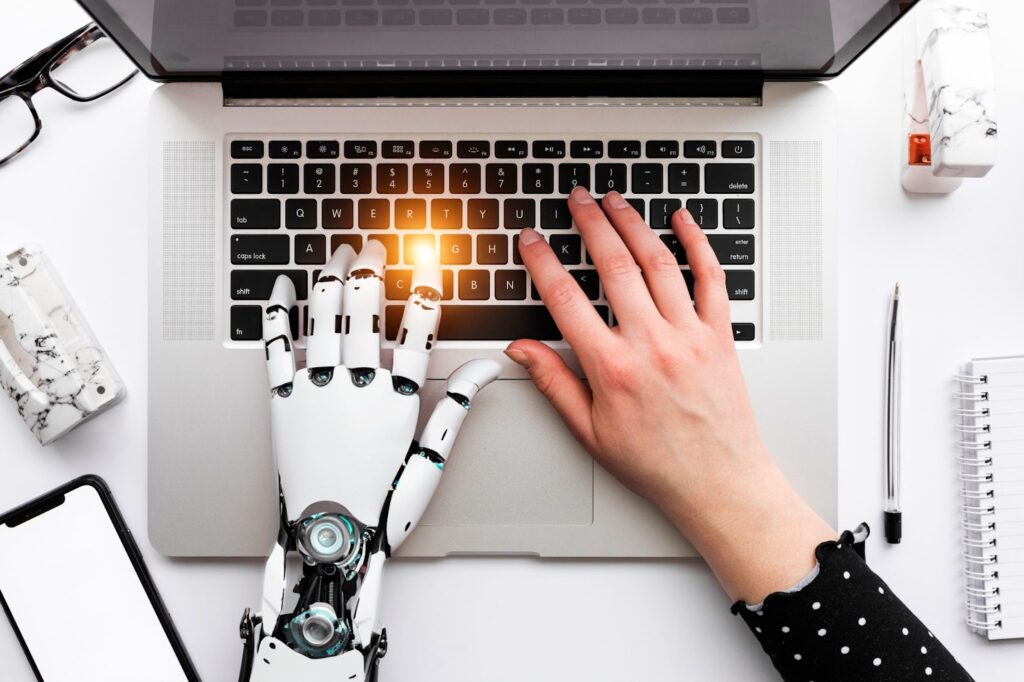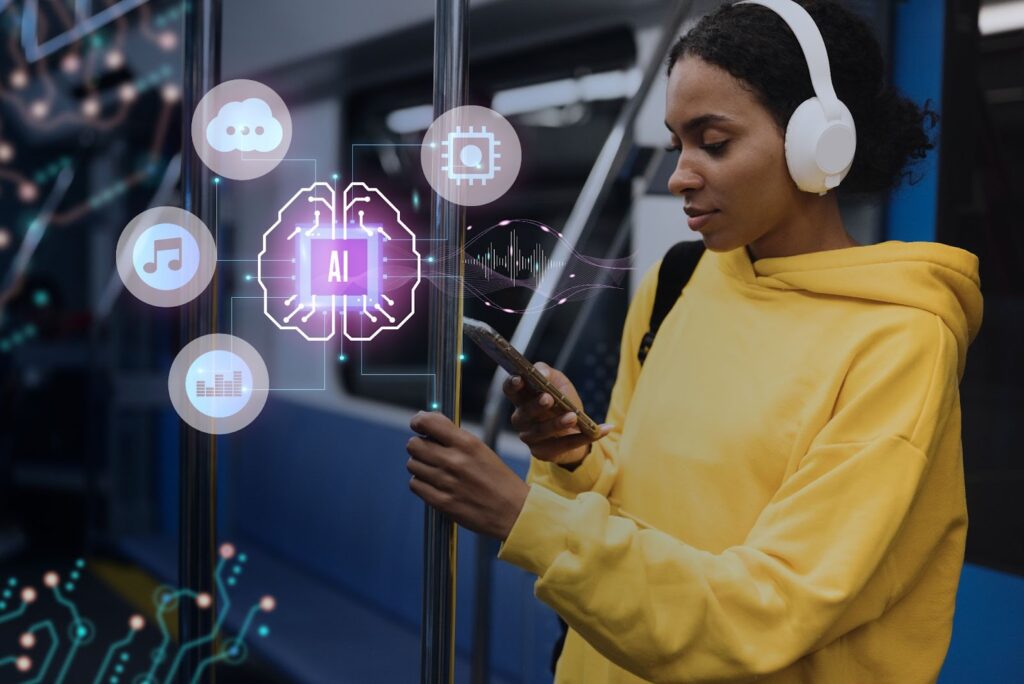In the rapidly evolving world of digital marketing, the advent of Artificial Intelligence (AI) has sparked a significant debate: Can AI replace digital marketing as we know it? This question stems from AI’s transformative impact across various industries, promising efficiency, scalability, and the ability to analyze data intelligently. But the answer is more complex in digital marketing, which involves creativity, emotional intelligence, and customer service.

Discover more about our Digital Marketing Specialist at VOOV

The Rise of AI in Digital Marketing
AI technology, including machine learning algorithms and AI-powered tools, revolutionizes the formulation and execution of marketing strategies. These technologies can sift through massive amounts of customer data, identify patterns, and predict consumer behavior. This means businesses can customize marketing better, saving time and resources.
Moreover, AI applications in digital marketing range from chatbots providing instant customer service to dynamic content personalization and automated email marketing campaigns. These AI-powered interventions enhance efficiency and significantly improve the customer experience, making marketing strategies more effective.
The Irreplaceable Human Touch
Despite AI’s impressive capabilities, the human element in marketing remains irreplaceable. Human marketers bring emotional intelligence, creativity, and a nuanced understanding of cultural and social contexts—qualities AI cannot replicate. The human touch is essential in creating compelling narratives, understanding subtle emotional cues, and building genuine brand-customer relationships.
For instance, while AI can analyze data and predict trends, it lacks the capacity for empathy and the intuitive grasp of human emotions that human marketers possess. This emotional intelligence is crucial in crafting messages that resonate personally with the audience, fostering loyalty and trust.
Synergy Between AI and Human Expertise
The most effective digital marketing strategies leverage both AI technology and human expertise. AI can handle data analysis, automate repetitive tasks, and optimize campaigns for performance, allowing human marketers to focus on creative strategy, content creation, and building meaningful customer relationships.
This synergy enhances the efficiency and effectiveness of marketing campaigns. It ensures that the marketing efforts are grounded in a deep understanding of the target audience, enriched by human empathy and creativity.
AI’s Impact on Marketing Teams
The integration of AI in digital marketing has raised concerns about the future of marketing jobs (completely replacing marketing). While AI can automate specific tasks, it is unlikely to replace human marketers completely. Instead, AI is reshaping marketing roles, requiring digital marketers to adapt and develop new skills, such as managing AI-powered tools and interpreting AI-generated insights.
The demand for human marketers who can blend creative thinking with AI technology is rising. Rather than replacing humans, AI creates opportunities for marketers to focus on higher-level strategic work, leaving routine tasks to machines.
Challenges and Limitations of AI in Marketing
Despite its potential, AI’s application in digital marketing has challenges. AI algorithms require vast amounts of data to learn and make predictions. This dependency on data raises concerns about privacy and the ethical use of customer information. Moreover, AI systems are only as good as the data they are trained on, making them susceptible to biases and inaccuracies if the underlying data is flawed.
Furthermore, AI needs to gain the ability to understand context and nuance in the way humans can, which can lead to misinterpretations and errors in customer interactions. These limitations highlight the importance of human oversight in AI-driven marketing strategies.
The Future of Digital Marketing: A Collaborative Approach
Looking ahead, the future of digital marketing lies in a collaborative approach that combines AI technology with human creativity and emotional intelligence. AI will continue to evolve, becoming an even more integral part of marketing strategies.

Marketers should not fear AI taking over. Instead, they should view it as a valuable tool. AI has the potential to enhance their work and improve outcomes. However, it is essential to use AI wisely.
Marketing agencies and businesses must invest in training their teams to work alongside AI, fostering a culture of continuous learning and adaptation. Companies can improve marketing by using AI and human marketers to connect with their audience personally.
Conclusion
In conclusion, while AI technology significantly enhances the capabilities of digital marketers, it can only partially replace the human touch fundamental to successful marketing strategies.
The future of digital marketing will not be about choosing between AI and human marketers but about how best to integrate the two, leveraging each’s strengths to create more dynamic, responsive, and effective marketing efforts. As we move forward, the synergy between AI and human expertise will define the cutting-edge of digital marketing, ensuring that creativity, emotional intelligence, and technological efficiency go hand in hand.
Discover the best Digital Marketing Assistants with VOOV.

